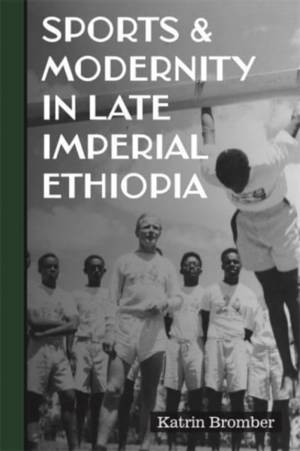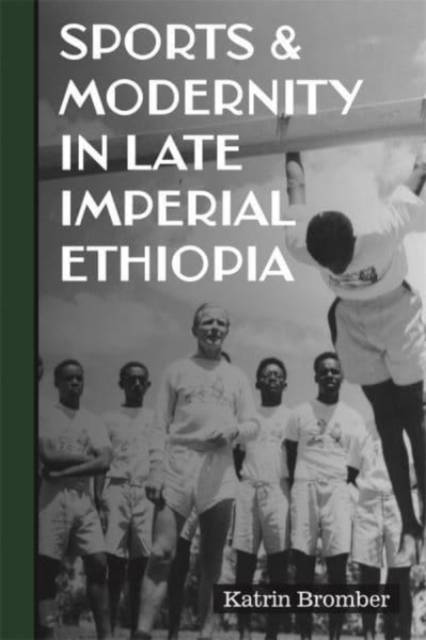
- Retrait gratuit dans votre magasin Club
- 7.000.000 titres dans notre catalogue
- Payer en toute sécurité
- Toujours un magasin près de chez vous
- Retrait gratuit dans votre magasin Club
- 7.000.0000 titres dans notre catalogue
- Payer en toute sécurité
- Toujours un magasin près de chez vous
Description
Innovative study of the role of sports in modernity in Africa. Sports in Ethiopia was always more than a means of useful recreation. It was also a way to enjoy and define fun, as new modes of behaviour emerged that showed what it meant to be a modern man or woman. This book is the first academic study of the history of modern sports in Ethiopia during the imperial rule of the twentieth century. Showing how agents, ideas and practices linked societal improvement and bodily improvement, this innovative study argues thatmodern sports offers new possibilities to explore the meanings of modernity in Africa.
Drawing on written and oral sources in Amharic, Tigrinya, English, French, German and Italian, Bromber provides an in-depth analysis of the role of sports in modern educational institutions, volunteer organizations and urbanization processes. She examines sports' function as a political propaganda tool during the Italian fascist occupation (1935 - 1941), as well as in representations of successful modernization under Haile Selassie (1930 - 1974). The integration into global networks of ideas about the fit colonized body linked Ethiopia, which was never colonized, to the legacy of colonialism. Institutions such as schools, civilian sports clubs, and volunteer organizations were not only loaded with coercive procedures, but instituted modes of behaviour that developed into certain styles and affirmation of the self as well as their contestation. Examining the locations for practising sports in organized forms, informal leisure and practices consumption in Ethiopia, this book contributes to recent debates on the role of sports in the history of urbanization in Africa, as well as those on global modernity. Ethiopia: AAUP
Drawing on written and oral sources in Amharic, Tigrinya, English, French, German and Italian, Bromber provides an in-depth analysis of the role of sports in modern educational institutions, volunteer organizations and urbanization processes. She examines sports' function as a political propaganda tool during the Italian fascist occupation (1935 - 1941), as well as in representations of successful modernization under Haile Selassie (1930 - 1974). The integration into global networks of ideas about the fit colonized body linked Ethiopia, which was never colonized, to the legacy of colonialism. Institutions such as schools, civilian sports clubs, and volunteer organizations were not only loaded with coercive procedures, but instituted modes of behaviour that developed into certain styles and affirmation of the self as well as their contestation. Examining the locations for practising sports in organized forms, informal leisure and practices consumption in Ethiopia, this book contributes to recent debates on the role of sports in the history of urbanization in Africa, as well as those on global modernity. Ethiopia: AAUP
Spécifications
Parties prenantes
- Auteur(s) :
- Editeur:
Contenu
- Nombre de pages :
- 240
- Langue:
- Anglais
- Collection :
- Tome:
- n° 53
Caractéristiques
- EAN:
- 9781847012920
- Date de parution :
- 15-04-22
- Format:
- Livre relié
- Format numérique:
- Genaaid
- Dimensions :
- 156 mm x 234 mm
- Poids :
- 512 g

Les avis
Nous publions uniquement les avis qui respectent les conditions requises. Consultez nos conditions pour les avis.






